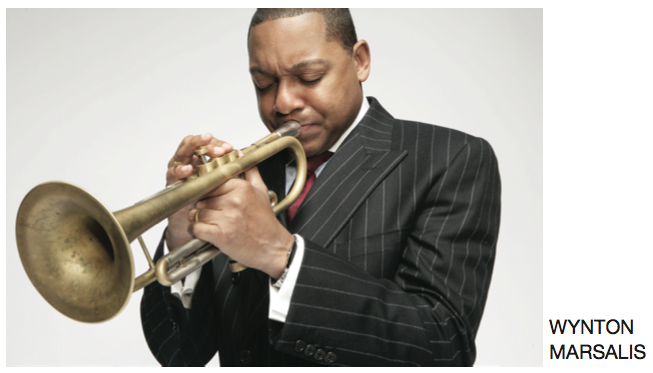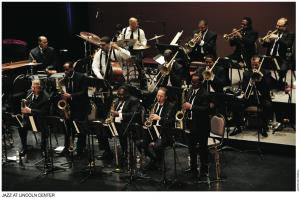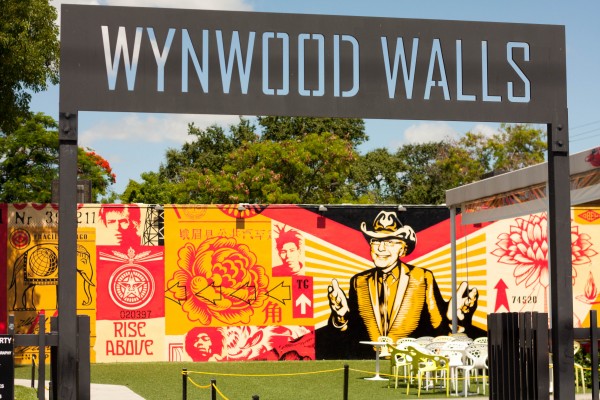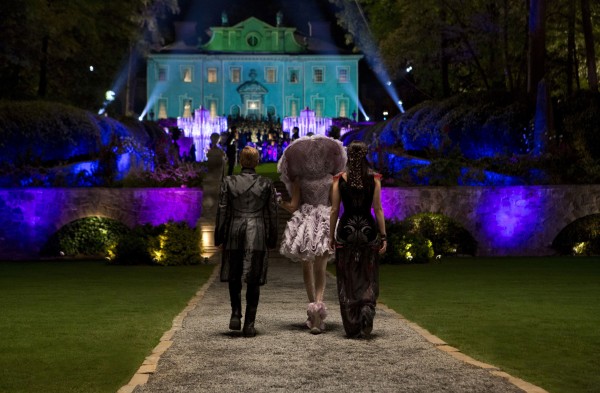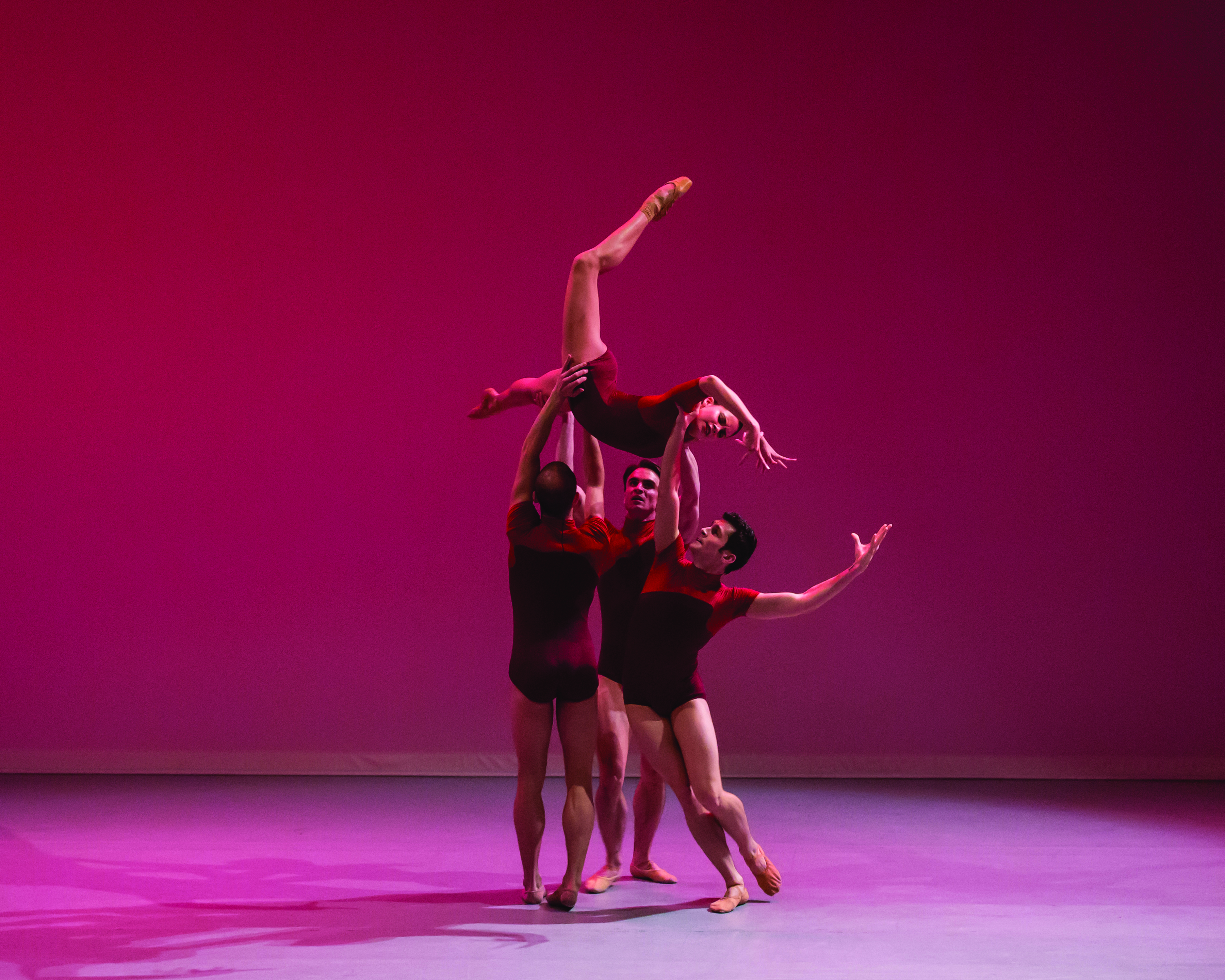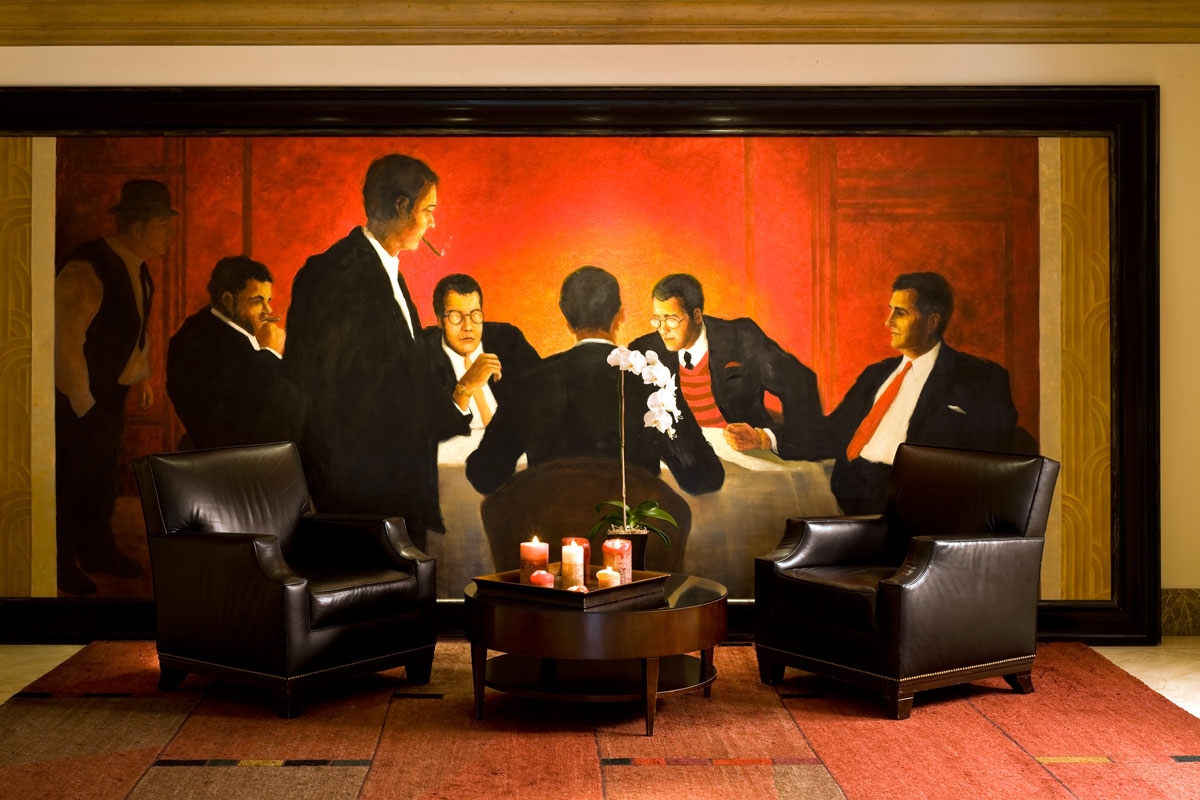A World of Jazz
Meet the Jazz at Lincoln Center musicians and discover the group’s new partnership with St. Regis, which includes opening a series of jazz clubs around the world, the first in Doha, Qatar.
By Kevin Cahillane
Jazz, a quintessential American art form, now has a new address in the Middle East. With plans to open five jazz clubs in the next five years, St. Regis and Jazz at Lincoln Center will introduce the first at The St. Regis Doha, a shimmering jewel on the Persian Gulf, in April 2012.
“Jazz is an innate part of the St. Regis legacy, and it is exciting to see a new generation of affluent travelers passionate about this social and cultural tradition,” says Paul James, global brand leader for St. Regis Hotels & Resorts. “As St. Regis continues to grow globally, we look forward to working with Jazz at Lincoln Center, which is uniquely positioned to bring the authentic jazz experience to life for music enthusiasts around the world.”
St. Regis has a long association with jazz that hearkens back to the days when swing was king and Count Basie, Duke Ellington and Buddy Rich graced the stage at the St. Regis rooftop ballroom in New York. In 2010, to celebrate more than a century of having jazz as its soundtrack, St. Regis produced “Timeless is Modern,” a compilation of 21 Duke Ellington pieces performed by Wynton Marsalis and the Jazz at Lincoln Center Orchestra exclusively for the brand.
Marsalis, the artistic director of Jazz at Lincoln Center and a longtime evangelist of jazz education, will be responsible for curating the performers who travel to and play in Doha. With an exhaustive Rolodex of jazz musicians at his disposal, the well-traveled trumpeter promises programming that appeals to both the aficionado and the casually acquainted. While acknowledging that jazz music can be foreign at first to the inexpert ear, he has few reservations about its ability to transcend any perceived geographic or cultural boundaries.
“Jazz plays great everywhere. Louis Armstrong played great. Duke Ellington played great. Count Basie played great,” Marsalis says. “Benny Goodman, when he went to Russia, people loved him.”
If anyone can assure that jazz remains a world-class draw to an international audience, it’s Marsalis, who has led the Jazz at Lincoln Center Orchestra on far-flung, big band expeditions for nearly two decades. He believes that jazz musicians make great ambassadors.
“When we go places, we’re loved, regardless of policies or politics. People love the musicians because we come from the soil of the people,” he says. “We’re the best of what our country has to offer.”
Doha Takes Center Stage
The opening of Jazz at Lincoln Center Doha in April furthers a cultural renaissance in Qatar, where soaring sand dunes and opulent towers create an architecturally eclectic skyline on the shores of the tranquil blue Persian Gulf.
While the additional jazz club locations have yet to be named, St. Regis has announced upcoming plans to open several hotels and resorts in emerging destinations, including Mauritius, Buenos Aires, Riviera Maya and Kuala Lumpur, to name but a few.
For now, though, Jazz at Lincoln Center Doha will enjoy its solo. Similar in character to Dizzy’s Club Coca-Cola at Lincoln Center in New York, the new venue will feature a multi-tiered lounge and dining venue serving up-tempo comfort food. Instead of Central Park shimmering behind the glass wall, patrons will be treated to the expanse of the Persian Gulf in its place—and, of course, America’s signature sound. Marsalis assures that guests will be rewarded for their refinement.
“It’s an opportunity to interface with quality art with people who can play,” he says.
“A lot of times the social life of the world is so loud it’s not possible to have a good time. So you can come here and have a good time in an adult environment.”
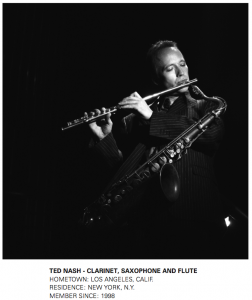 For Ted Nash, joining the family business was simply a matter of choosing an instrument. His father, Dick, and late uncle ted nash, were renowned jazz musicians in their own right, while his mother played piano and carried a tune. “I never even second-guessed the idea of being a professional musician,” Nash says. Turning his back on the sun, Nash left his native Los Angeles at 18 for New York, where he imagined the greatest concentration of serious jazz musicians lived. while he has certainly made it here, Nash knows that success was hardly preordained. “Let’s be honest, it’s a very iffy job in terms of stability,” he says. “But it sure gives you a lot of pleasure if you’re really committed to it.
For Ted Nash, joining the family business was simply a matter of choosing an instrument. His father, Dick, and late uncle ted nash, were renowned jazz musicians in their own right, while his mother played piano and carried a tune. “I never even second-guessed the idea of being a professional musician,” Nash says. Turning his back on the sun, Nash left his native Los Angeles at 18 for New York, where he imagined the greatest concentration of serious jazz musicians lived. while he has certainly made it here, Nash knows that success was hardly preordained. “Let’s be honest, it’s a very iffy job in terms of stability,” he says. “But it sure gives you a lot of pleasure if you’re really committed to it.
On Wynton Marsalis: when I first joined the band I was particularly sensitive to wynton’s reactions because he didn’t really know me, and I felt like musically and culturally I came from a slightly different background. He came from much more blues-oriented, new orleans-based stuff where I came from Los Angeles and a different aesthetic musically, so I felt like he was judging me a little bit. He may not have been, but he kind of looked at me a certain way, like ‘show me what you got.’ ”
Favorite jazz recording: “My Funny Valentine,” Miles Davis. I used to come home from high school, lay in my bed, put that on and kind of dream and drift.”
What’s on your iPod? “I recently bought a whole stereo system in pieces. I was in the Salvation Army and bought a 1970s dual turntable. I went online and bought some 70s Cerwin Vega speakers, and then I found an old 70s Pioneer amp and I set it up in my office, and all I listen to is 70s records on it. I can’t listen to anything else on it. It’s Steely Dan and it’s Stevie Wonder and it’s Aretha Franklin and it’s Crosby, Stills and Nash. Anything from the early and mid-70s sounds so good on that system. I almost never put a jazz record on it.”
For Victor Goines, arriving at Jazz at Lincoln Center is a matter of frequent flyer miles, commuting all the way from Evanston, Ill., where he is the director of jazz studies at Northwestern University. Prior to that appointment, he held a similar academic post at the Juilliard school in Manhattan. A gifted and prolific composer, Goines has recorded and performed with the likes of Ray Charles, Bob Dylan, Dizzy Gillespie and countless luminaries, in addition to his own original repertoire. Goines credits his academic resume and artistic pedigree to one singular jazz encounter: listening to John Coltrane with his high school band director. “The recording that changed my life was ‘Trane playing Countdown,” he says. “It was an awakening. It made me realize that was the direction I was going to chase.”
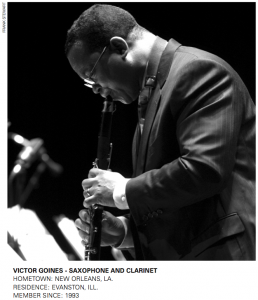 On playing with Jazz at Lincoln Center: “We realize that every time we play it’s a privilege. When we come together, we try to deal with it accordingly.”
On playing with Jazz at Lincoln Center: “We realize that every time we play it’s a privilege. When we come together, we try to deal with it accordingly.”
On improvisation: “What we do in jazz is very similar to what we’re doing in this conversation. We prepare the words and the vernacular of how we’re going to speak in the English language, or in any language, and those who are actually most articulate in the language can have the best conversations.”
Dream place to play: Africa
While Wynton Marsalis calls Ali Jackson the conductor of the orchestra, the drummer prefers a more sporting metaphor. “It’s like being quarterback on a football team,” Jackson says. “You have to have the conviction and the trust of the band. Even if you’re completely wrong they’ve got to be, ‘we’re going with him. He’s wrong but he’s right.’ ” It’s a position that he’s been preparing for his whole life, having grown up a prodigy and fourth-generation musician, or as he calls it, a tagalong. After earning an undergraduate degree at the New School University for contemporary music, he studied under Elvin Jones and Max Roach while launching his own improvisational course.
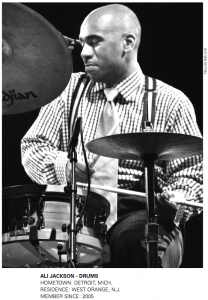 Is the orchestra appointed or auditioned for? “It’s appointed but it’s ratified by other members of the band. There’s only like a handful of guys that would be qualified or have enough skill to do the job. “
Is the orchestra appointed or auditioned for? “It’s appointed but it’s ratified by other members of the band. There’s only like a handful of guys that would be qualified or have enough skill to do the job. “
On preparation: “In our orchestra, there are 15 members, and then there are at least 10 arrangers, and everyone has a different concept and a way of playing, and there are thousands of compositions we play from the complete history of jazz music. It requires a lot of homework for us individually, but at the same time we have a lot of trust in knowing how everyone works and operates.”
What’s on your iPod? “I listen to a lot of younger jazz musicians or musicians in my generation. I listen to pop music only by chance.”
MAKING THE BAND
The Jazz at Lincoln Center Orchestra brings the swing night after night with 15 of the world’s most distinctive musicians.
Wynton Marsalis, the virtuoso trumpet player and artistic director of Jazz at Lincoln Center, says that when it comes to jazz, everyone fits in. “Our music is accepting of the fact that people are different,” the bandleader remarked after a recent performance. “Not only does it accept that people are different, it celebrates the fact that they are different. Who wants to have all the people be the same?” In that spirit, on the following pages, we chat with three members of the Jazz at Lincoln Center Orchestra who help make up the vibrant mosaic of New York’s most multifaceted band.
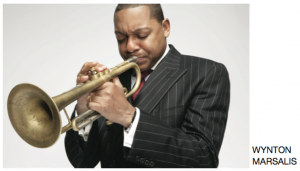
ALL THAT JAZZ
Less than a mile from The St. Regis New York is Dizzy’s Club Coca-Cola, the inspiration for Jazz at Lincoln Center Doha.
While it’s highly recommended, you don’t have to go all the way to Qatar to experience live music in the Jazz at Lincoln Center tradition. In fact, you don’t even need to get in a cab.
Just a few lights north of the St. Regis, down-home meets uptown at Dizzy’s Club Coca-Cola, a sophisticated and soulful live jazz venue with a cinematic view of Central Park.
“I like the ambiance of it. I like the room,” Wynton Marsalis says, referring to the parabola-shaped performance space that features curved walls and generous sight lines. “[I like] the feeling of people having a good time. It’s not fussy. Just a good place to hang and play music.”
In fact, Marsalis ushered in 2012 from Dizzy’s bandstand with an 11-piece band playing the music of Jelly Roll Morton and King Oliver, providing a cool contrast to the tumult of Times Square.
If performers can be said to enjoy the intimacy, acoustics and overall musical aesthetic, patrons often marvel at the menu, featuring Southern-infused comfort food with a twist. From mac and cheese to Miss Mamie’s fried chicken to the proprietary pineappletini, Dizzy’s Club Coca-Cola provides distinctive riffs on classic arrangements.
Then, of course, there’s that stupefying perch. “You know, Letterman pays for his backdrop,” says Jazz at Lincoln Center Orchestra member Victor Goines, who recently completed a weeklong run of shows at Dizzy’s Club Coca-Cola. “We got the real thing.” (Dizzy’s Club Coca-Cola, Time Warner Center, Frederick P. Rose Hall, 33 W. 60th St.; 212-258-9595; jalc.org)

TOP BRASS
A brief interlude with Wynton Marsalis, artistic director of Jazz at Lincoln Center.
He is likely the most recognized jazz musician in the world. Winner of the Pulitzer Prize for Music, nine Grammy Awards and named one of the 25 most influential Americans by TIME Magazine. Twice. And the hits keep coming. When St. Regis sat down with Wynton Marsalis in his dressing room after a recent show, he had just been named the new cultural correspondent for CBS News.
Q: What excites you about your new assignment at CBS?
A: I’m just looking forward to the chance to write about our culture and report on it. I think there’s a hole in our way of life. I call it ‘hidden in plain view.’ It gives us a chance to expose more people to the richness and diversity of our culture.
 Q: I wonder if you could talk about the rapport of the orchestra?
Q: I wonder if you could talk about the rapport of the orchestra?
A: I love them. Some of the guys in the band I’ve taught since they were in high school. And we have ups and downs. Our music is very much a music of constructive confrontation. And I always say that it’s a blessing for me at this stage in my life to play with a band this good because it’s not guaranteed. Bands are temperamental and hard to put together.
Q: Would you say that this is the best orchestra in the world, or is that question even meaningful to you?
A: There’s a lot of people in the world. It’s not necessary to beat anybody. But we know it’s like a golden period for us. Just like when it wasn’t a golden period we knew that. Our trumpet section, Marcus Ryan and I, we’ve been together 17, 18 years. When we play together, we play with a certain pride and precision.
Q: Is the band largely appointed by you or is it audition-based?
A: The cats in the band generally pick it. But there’s not a lot of people that play these styles we play. Certain styles are difficult, and when you get in it’s very difficult to stay in.
Q: I sensed tonight there was a great intimacy between you and the audience.
A: Yeah, we’ve been doing it for years. They know when they come to the house of swing that’s the way we all are. We’re very basic, down home. Not a lot of fuss. I’ll be talking to you. The cats in the band will be messing with me too. They be like, “Shhhh. Let’s go, man. Don’t talk.”

